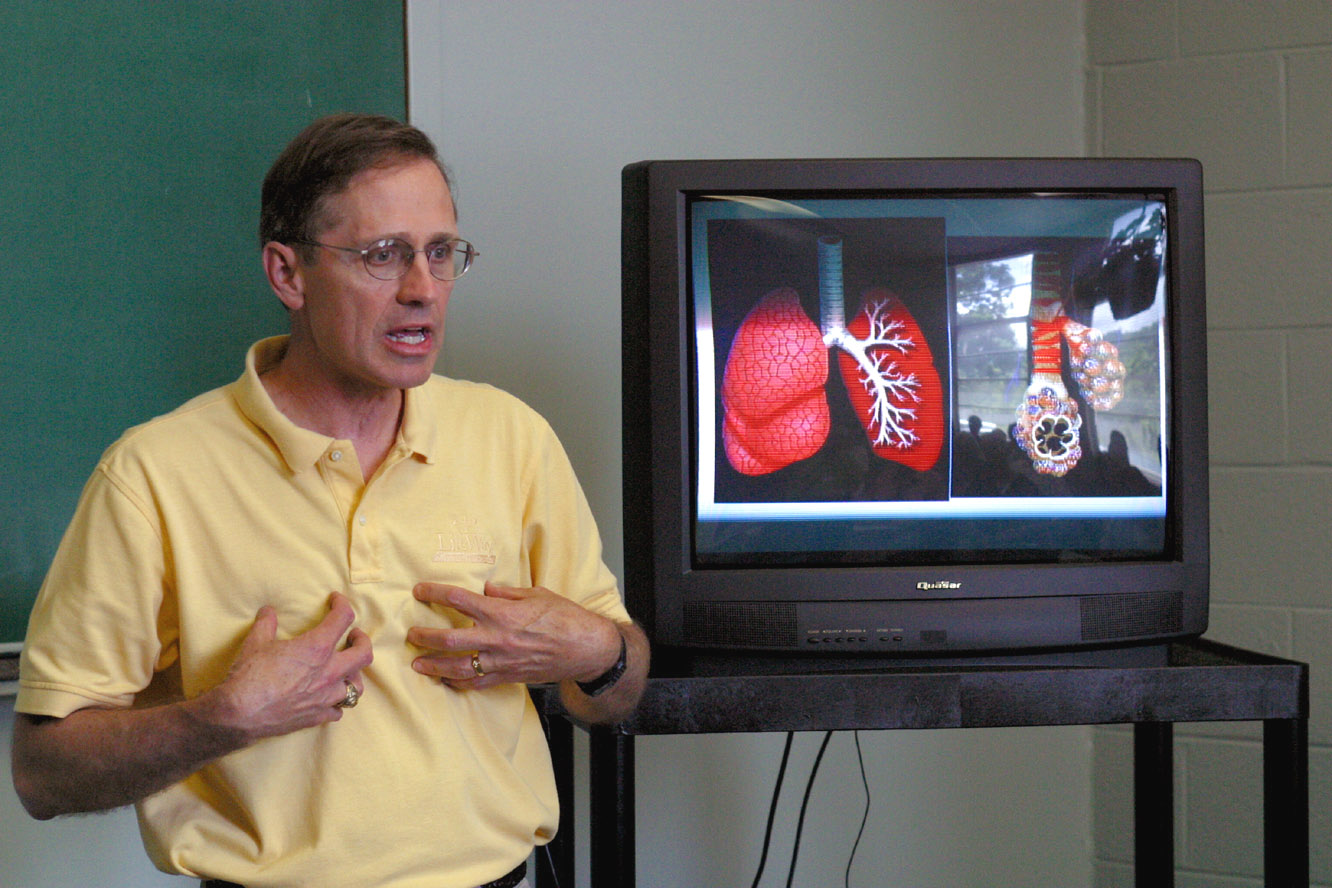
RIDGECREST, N.C. (BP)–Think of your life as a rubber band stretched to its limit. If you add one more activity to your schedule, you are likely to pop.
“The overload syndrome is the idea that we’re stretched, and if we add one more thing, we step over the line until we finally break,” said Tommy Yessick, minister wellness specialist for LifeWay Christian Resources of the Southern Baptist Convention.
“We in America tend to not realize that we can be stretched until we can’t go anymore, so we add one more thing. And that’s what leads to our mounting stress,” Yessick said in a workshop on overload syndrome during the National Conference for Church Leadership, June 24-28, at LifeWay Ridgecrest (N.C.) Conference Center.
Yessick asked participants to consider their activities. “Think of all the things you do at church, for your kids, for your family, for the community. Now think of all the things you think you should be doing.”
He then asked them to consider their attitudes toward their daily activities.
“What type of attitude do you have as you approach all of your tasks? If you dread many of them, that can add stress to your life too.”
Yessick suggested people should establish a margin between their load and their limit. “A margin is the space between what you are currently involved in and the limit you can take. The limit is absolutely as far as you can go.”
He said when there is no buffer between load and limit, “exhaustion is the result.”
“People need a buffer between, ‘I’m doing it, and I feel good about it, and everything is OK’ and exhaustion,” he said. “The margin or buffer is the space between vitality and exhaustion.”
Overloading on activities not only impacts the individual, it affects his or her families and friends, Yessick said.
“Your joy dries up when you step over the line and stay over the line, and that affects the joy of those around you,” he said. “You can step over for a little bit, but you can’t stay there.”
Americans spend 10 percent more than they have in time, energy and money, he said.
“We work hard, play hard and crash hard. You will have to repay the money or somebody will come and get you. But who holds the mortgage on you? Who is the monitor of your time and energy?”
Christians must regulate the activities in their own lives, he said, or they won’t be any use to God. To do that takes spiritual discipline, he added, which includes creating a space in which God can work, preventing activities from pushing the limit, and finding a place where you are neither occupied nor preoccupied.
Yessick suggested several tactics for creating a margin between load and limit and increasing the chances of spiritual discipline.
— Disconnect from accessibility. “One of the great ways to take care of overload syndrome is to turn off your cell phone, take your phone off the hook at home or allow the answering machine to pick it up. Don’t let anything interrupt your slack time.”
— Prune some activities. “Quit doing so much; if you add an activity to your schedule, take one away.”
— Learn to laugh. “One of the great ways to help overload syndrome is take some time to snicker and laugh. I call it internal jogging.”
— Minimize time with negative people. “They pull you down. You find yourself starting to think like them.”
— Stay with good enough. “Do you really need a new car or refrigerator? Sometimes what you have is good enough. You have to make all kinds of decisions when in the market for something new, and that adds stress. Sometimes learn to say, ‘What I have is good enough.'”
— Repent from the pride of busyness. “Some people think if they are doing a lot, they’ll look busy, and if they look busy, they’ll be valuable. Don’t stay busy just for busyness’ sake.”
— Take a break from media and electronics. “Turn off your TV and keep it off for a day or a week. Don’t let the kids play with any electronics for a while. Shut down the computer.”
— Establish routines. “This can be very important to help with overload syndrome. Schedule Saturday morning breakfast with your family every week.”
— Adjust your expectations of yourself. “You’re not a superman or a superwoman.”
— Ruthlessly eliminate hurry. “Slow down, enjoy the moment. The opposite of overload syndrome is learning to take some time to be still,” he said.
The National Conference for Church Leadership Church is sponsored by LifeWay Christian Resources of the Southern Baptist Convention. Church leaders interested in attending an NCCL conference next year can email [email protected] for more information.
–30–
(BP) photo posted in the BP Photo Library at http://www.bpnews.net. Photo title: ASSESSING OVERLOAD.

















